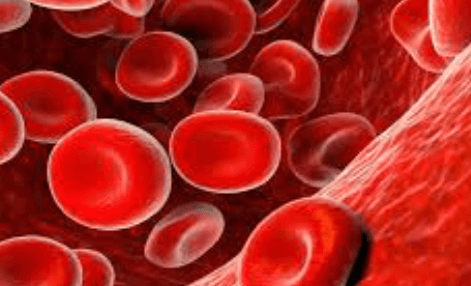
Red:1rjoyd32uuy= Blood
The intricate composition and function of red blood cells, or erythrocytes, are fundamental to understanding human physiology. Their ability to transport oxygen and carbon dioxide is not merely a biological process but a cornerstone of life itself. As we explore the nuances of hemoglobin’s role, the implications of blood disorders, and the promising innovations in hematology, it becomes evident that the study of erythrocytes extends far beyond basic biology. What discoveries lie ahead in the realm of regenerative medicine, and how might they transform our approach to health?
Understanding Blood Composition
Blood is a complex fluid composed of various components, each playing a vital role in maintaining physiological functions and overall health.
Among these components are distinct blood types, which determine compatibility for transfusions and influence immune responses.
Blood functions include transporting oxygen and nutrients, regulating temperature, and facilitating waste removal, all of which are essential for sustaining life and promoting well-being.
See also: Puppy:Iuuiiqqqwao= Dog
The Role of Hemoglobin
Hemoglobin frequently serves as the primary protein responsible for transporting oxygen from the lungs to tissues throughout the body, while also facilitating the return of carbon dioxide back to the lungs for exhalation.
Its unique hemoglobin structure enables efficient oxygen transport, binding oxygen molecules in high-concentration areas and releasing them in low-concentration regions, thereby supporting cellular respiration and overall metabolic function.
Innovations in Blood Research
Recent advancements in blood research have unveiled groundbreaking techniques that enhance our understanding of hematological diseases and improve therapeutic strategies.
Innovations in blood donation processes and storage methods are increasing the safety and efficacy of blood transfusions.
These developments not only optimize donor selection but also extend the shelf life of blood products, ultimately enhancing patient outcomes and promoting a culture of altruism in healthcare.
Blood Disorders and Treatments
Blood disorders encompass a range of conditions that affect the composition and function of blood, including anemia, clotting disorders, and leukemias.
Understanding these common disorders is essential for effective diagnosis and treatment, which may include medications, transfusions, or advanced therapies.
This discussion will explore the various blood disorders and the treatment options available to manage them effectively.
Common Blood Disorders
A variety of common blood disorders can significantly affect overall health, requiring effective diagnosis and treatment strategies to manage their impact.
Conditions such as anemia types, sickle cell disease, and thalassemia management disrupt normal blood functions.
Platelet disorders and blood cancer involve complications with clotting factors and leukocyte functions.
Additionally, plasma proteins play crucial roles in blood type compatibility and enhance the efficacy of blood donation.
Treatment Options Available
Effective treatment options for blood disorders vary widely depending on the specific condition, encompassing strategies such as medication, transfusions, and advanced therapies.
Plasma donation plays a crucial role in managing conditions requiring clotting factors, particularly in hemophilia treatment.
Additionally, synthetic clotting agents and gene therapy are emerging as promising alternatives, aiming to enhance patient outcomes and promote a greater sense of autonomy in managing their health.
Applications in Regenerative Medicine
Regenerative medicine has significantly advanced through the application of stem cell therapy, which harnesses the potential of stem cells to repair and regenerate damaged tissues.
Additionally, innovations in tissue engineering have created opportunities for developing functional replacements for injured organs.
The strategic utilization of blood components further enhances these therapies, providing critical support in healing and recovery processes.
Stem Cell Therapy
Utilizing the unique properties of stem cells, researchers are exploring innovative therapies aimed at repairing damaged tissues and organs in various medical conditions.
Stem cell sources such as embryonic and adult stem cells are pivotal in developing therapeutic applications.
These advancements hold the potential to revolutionize treatment strategies, offering hope for conditions previously deemed untreatable, thus enhancing individual autonomy and quality of life.
Tissue Engineering Advances
Recent advancements in tissue engineering are complementing stem cell therapy by developing biomaterials and scaffolds that facilitate the regeneration of damaged tissues and organs, thereby enhancing the potential for successful clinical outcomes in regenerative medicine.
Key innovations include 3D bioprinting, vascular engineering, and nanotechnology applications, which address regulatory challenges and enable immune modulation, artificial blood production, and effective cell scaffolding for improved healing.
Blood Component Utilization
The diverse applications of blood components in regenerative medicine are transforming therapeutic strategies for tissue repair and disease management.
Blood donation plays a crucial role in providing essential components for treatments, while blood transfusion facilitates recovery in patients with significant injuries or surgeries.
These innovations enhance healing processes and promote the development of personalized medicine, emphasizing the importance of voluntary blood donation and efficient transfusion practices.
Ethical Considerations in Blood Studies
Ethical considerations in blood studies encompass a range of issues, including informed consent, privacy protection, and the equitable distribution of research benefits.
Ethical sourcing of materials, adherence to regulatory frameworks, and robust research oversight are essential.
Additionally, cultural sensitivities must be respected, ensuring participant welfare and data privacy, while fostering community engagement and equitable access through effective risk management strategies.
Future Directions in Hematology
Advancements in technology and genomics are poised to revolutionize the field of hematology, enhancing diagnostic accuracy and treatment options for blood disorders.
The rise of personalized medicine will enable tailored therapies, improving patient outcomes.
Furthermore, a focus on hematology education will equip healthcare professionals with the necessary skills to implement these innovations, fostering a more informed and liberated approach to blood health management.
Case Studies and Examples
Case studies in hematology provide valuable insights into the practical applications of emerging technologies and personalized treatment approaches for various blood disorders.
For instance, innovative techniques in blood transfusions have enhanced patient outcomes, while targeted blood donation campaigns have effectively addressed shortages.
These examples underscore the importance of integrating technology and community engagement to improve the management of blood-related health issues.
Conclusion
In conclusion, the study of blood composition and its components, particularly hemoglobin, is essential for understanding various blood disorders and advancing treatments.
For instance, a hypothetical case study involving a patient with sickle cell anemia highlights the importance of innovative therapies that target abnormal hemoglobin production. Such advancements could potentially transform patient outcomes and enhance quality of life.
Continued research in hematology promises to deepen insights into blood function and address the challenges posed by blood-related conditions.




